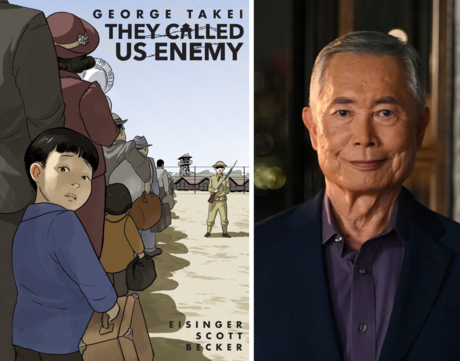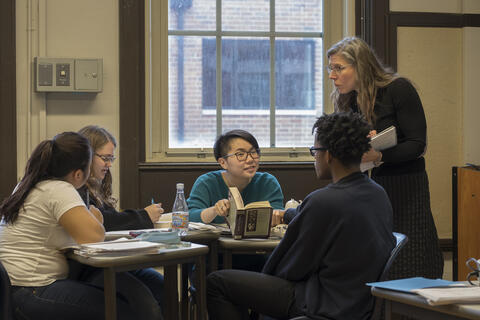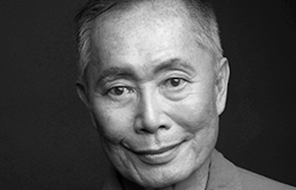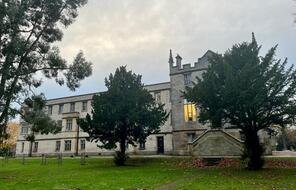
All Community Read: George Takei’s They Called Us Enemy
As we welcome a new school year, we’re embarking on a powerful learning journey with schools across the country during this year’s All Community Read of They Called Us Enemy. Written by social justice activist, actor, and New York Times bestselling author George Takei, this poignant graphic memoir shares Takei’s firsthand account of his childhood incarceration in Japanese-American incarceration camps during World War II.
Takei chronicles his family's years behind barbed wire, the terrors and small joys of childhood in the shadow of legalized racism, his mother's hard choices, his father's tested faith in democracy, and the way those experiences planted the seeds for his astonishing future.
Throughout the year we’ll host a series of related events for educators, students and our broader community. The first of these will be a cost-free educator webinar on November 2. Educators will leave the webinar with Facing History resources and strategies for teaching historical context, perspective-taking, ethical reflection, and cultivation of empathy in order to nurture students’ capacity for informed and engaged citizenship. Then on February 13, 2024, we'll host an online community discussion and author event with Takei that you and your students can attend right from your classrooms!

Teaching George Takei’s They Called Us Enemy and Japanese-American Incarceration
Join us for a webinar to engage in conversation around George Takei’s memoir and gain strategies for how to use it in your classroom.
About the Author
George Takei is known around the world for his role in the acclaimed original TV series Star Trek, in which he played Hikaru Sulu, helmsman of the starship Enterprise. But Takei's story, which includes an acting career that spans six decades, goes where few have gone before. From a childhood spent with his family wrongfully imprisoned in Japanese-American incarceration camps during World War II to becoming one of the country's leading figures in the fight for social justice, LGBTQ+ rights and marriage equality, Takei remains a powerful voice on issues ranging from politics to pop culture.
Whether you’ve already gotten started teaching this book, or if you’re still in the planning stages, read on to see some resources we recommend to support you and your school if you would like to join us as we explore the following questions: What does it mean to be American? Who gets to decide? When the world is against you, what can one person do?
Getting Started
Get a one-hour intro to this text and additional tools and tactics to help bring it into the classroom with our upcoming webinar, Teaching They Called Us Enemy and Japanese-American Incarceration, on November 2, 2023 (available on-demand thereafter).
Use our Whole School Read Planning Guide to help you and your colleagues design and implement a whole-school read that centers students’ voices and experiences and builds community around a shared text. Don’t miss the discussion handouts at the end of the guide!
Watch Why I love a country that once betrayed me for an introduction to Takei’s story as he looks back on how his wrongful incarceration shapes his personal definition of patriotism and democracy.
Gain additional historical context for Japanese-American incarceration in this brief documentary from Abby Ginzberg and Ken Schneider: And Then They Came for Us. These resources will help you and your students better understand and center the voices and experiences of people who experience racial discrimination as you design lessons and conversations related to this All Community Read.
Going Deeper
Implement Bearing Witness to Japanese American Incarceration to supplement George Takei’s memoir. It introduces students to this history and explores difficult questions about national identity, institutional racism, and citizenship.
Explore our In Pursuit of Democracy and Freedom: A US History Inquiry to introduce students to the ideals of democracy and freedom and help students develop a deeper understanding of the complexities of these themes in US history as well as in their own lives.
Read Farewell to Manzanar for Jeanne Wakatsuki’s personal account of her family’s forced detention at Manzanar incarceration camp.
Use the S-I-T strategy after reading Takei and Wakatsuki’s texts or watching the above videos to help students process these materials by identifying what they found surprising, interesting, and troubling.












